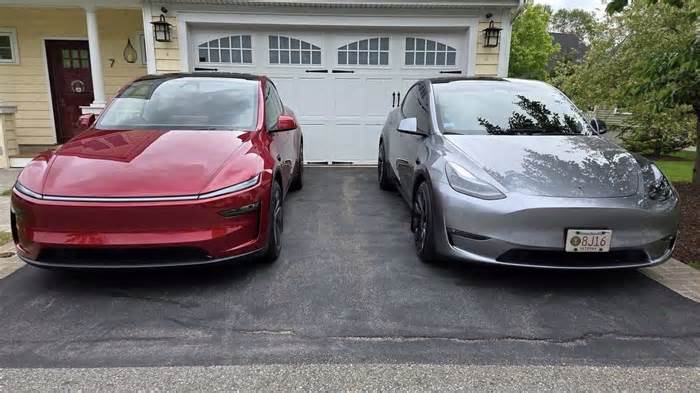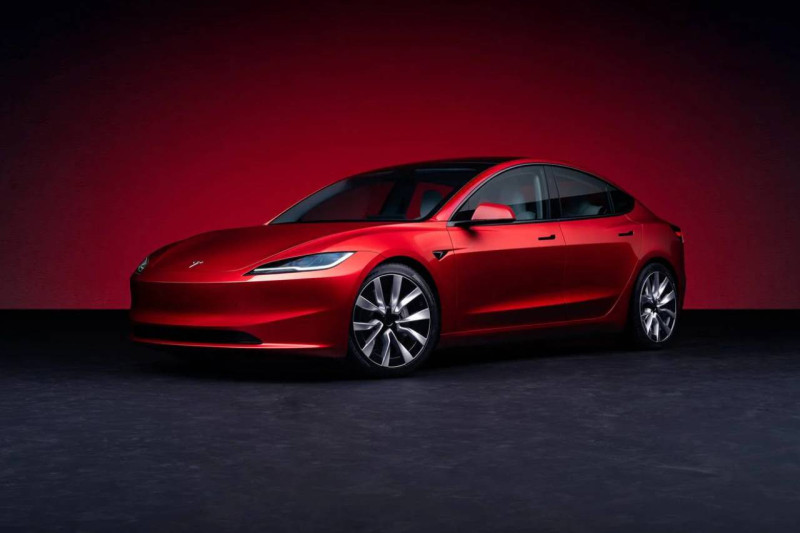
My Tesla Model Y Juniper Cost $41 to Charge at Home for Just 282 Miles, Boston Gas Would Be $15 for the Same Distance
- by Torque News
- Jun 04, 2025
- 0 Comments
- 0 Likes Flag 0 Of 5

Buying an EV to save money isn’t always as straightforward as it seems, kind of like choosing a Ferrari SUV to carry lumbar for your next home renovation project. Sure, it looks sleek, feels futuristic, and might even make the neighbors wonder where your income comes from.
But it’s a calculated game of kilowatt-hour economics, tire pressure, grid rates, and meteorology. One wrong move, a high electricity rate, a poor charging setup, or a New England cold snap, and your promised savings evaporate faster than any gas tank.
Which is an issue one Facebook user found out the hard way. He took his frustrations to a Tesla Model Y owners group:
“Anyone else pay more for electricity than gasoline? I paid $41 to charge at home. My car only has 282 miles on it.
Here in Boston, gasoline is only $2,60/gal. Electricity (via Eversource) is $0.33/kWh + a $10 fee per customer.
It actually just went down 2 cents.
However, we do get free chargers, installation, and panel upgrades, if needed (maximum $1,700). Hence, the Electric Vehicle Program charge that EVERYONE has to pay, whether they own an EV or not.
Massachusetts also gives EV buyers $3,500 to $6,000 toward any EV under $55,k
Note: We do not have variable rates. The rate is fixed 24/7.
Let us all know how your area fares. ”
That’s the EV cost paradox in action. The idea is that driving an electric car should save you money. But in Boston, it costs $41 to drive 282 miles, that’s about 33 cents a mile.
It’s not a deal-breaker, just a reminder that real-world costs can vary depending on where and how you charge.
You could run a Toyota Corolla, getting 35 mpg at $2.60 a gallon, for $0.074 per mile. That’s less than a third the cost per mile, and it doesn’t require you to worry about grid load balancing, off-peak hours, or whether your garage has the thermal insulation of a space shuttle.
Boston EV Charging Costs: Electricity Rates, Monthly Bills & Savings Programs
As of June 2025, Boston residents pay an average of 28.27 cents per kilowatt-hour (kWh) for electricity, which is significantly higher than the national average of 16.15 cents per kWh. This results in an average monthly electric bill of approximately $154.01 for Boston households.
Charging an EV at home in Boston can be cost-effective. For instance, if your electricity rate is around 14 cents per kWh, and your Level 2 charger dispenses electricity at a rate of 6 to 8 kWh, you can expect to pay about $1.00 per hour of charging. This translates to approximately $65 per month, depending on your driving habits and electricity rates.
Public charging rates in Massachusetts vary. The city of Boston's municipal ChargePoint stations charge $0.25 per kWh, offering a more affordable option for EV owners. However, the average cost at public charging stations across the state is about $0.52 per kWh, making it one of the more expensive states for public EV charging.
Programs like National Grid's Off-Peak Charging Program provide financial incentives for EV owners to charge their vehicles during off-peak hours. Participants can earn $0.05 per kWh for charging between 9:00 p.m. and 1:00 p.m. from June to September, and $0.03 per kWh during the same hours from October to May. These rebates are applied as credits on the following month's electric bill.
In Boston, the numbers tell a more complex story, not because anything went wrong, but because incentives and utility rates sometimes overlap in ways that blur the financial picture.
It's a reminder that even well-executed transitions come with a learning curve.
But not all EV owners are suffering.
“I’m in PA and my electricity is $.18 a kWh. Gas in our area is $3.22, so we’ve got some pretty significant savings.”
Commented another user.
Please first to comment
Related Post
Stay Connected
Tweets by elonmuskTo get the latest tweets please make sure you are logged in on X on this browser.






 Energy
Energy



















